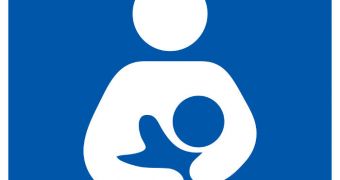A study conducted by investigators at the University of Massachusetts Amherst (UMA) has revealed that it's possible to assess a woman's chances of developing breast cancer by analyzing her breast milk.
The finding is extremely important, because it means that new mothers could finally have a easy-to-use tool at their disposal to determine whether they are at an increased risk of developing the condition,
UMA experts say that their approach is heavily reliant on the DNA analysis of a few specific types of cells that can be found in breast milk. When breast cells become cancerous, DNA and genes in these cells suffer certain modifications, that can easily be detected.
The team behind the new work admits that the results are still preliminary, Experts say that the investigation needs to be replicated on a lot more women in order for this correlation to be accurately teased out, LiveScience reports.
The development of such a screening tool is a tremendous achievement, given that – statistically speaking – more than 80 percent of all women give birth, and therefore produce breast milk.
Another advantage is that it can detect breast cancer in lactating women. The screening technique usually employed to find signs of the disease – mammography – does not work while women are producing milk to feed their children.
Details of how the new approach works were presented Monday, April 4, at the 102nd annual meeting of the American Association for Cancer Research (AACR 2011), which is held between April 2-6, in Orlando, Florida.
The new research was primarily conducted on epithelial cells. These can be found lining the mamary gland and duct, and are also one of the most probable locations for the development of breast cancer.
“There's something different going on in the cells that came from that breast that developed cancer,” explains UMA associate professor of veterinary and animal sciences Kathleen Arcaro. She was also a lead researcher on the study.
Past studies have demonstrated that mutations in three genes – called RASSF1, GSTP1 and SFRP1 – could be responsible for the development of breast cancer. The team is looking for the same mutations in epithelial cells recovered from milk.

 14 DAY TRIAL //
14 DAY TRIAL //